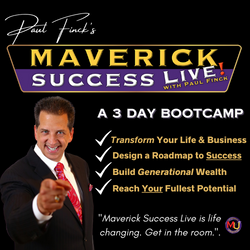Relocating to a New State? Here’s What You Need to Know
By Shirley Martin
Whether it be due to professional reasons or the fact that you need a fresh start, moving to a new state is an experience to look forward to. Realty411 explores the steps you need to take for making a smooth transition to your new state.
article continues after advertisement
Decide Where You Want to Live
The glitz and glamor offered by big cities often act as a strong pull for newcomers, but it is not the best option for everyone. Even if you are used to city life, the lifestyle and cost of living will vary greatly from state to state. For instance, moving from Pennsylvania to California can prove to be a major change.
Conducting online research should be your first step to learning about the best regions of the state, housing options, and proximity to amenities. To help you choose the region that best suits your expectations, consider working with local real estate agents that can help you learn about the area and housing market and assist in relocation activities.
Determine What to do With Your Old Home
You may need to sell your former home in order to afford the move. But even if you aren’t under financial pressure to sell, there are still many factors to consider to determine whether you should sell or rent your property. You should investigate market conditions before making a decision.
If you do decide to rent it, there are many things you’ll need to do to be a successful landlord. Ensure that you follow all legal requirements for your state and city. Be conservative when estimating your expenses, and prioritize high-quality tenants. With care and caution, you’ll be able to turn your former home into a productive profit center.
Prepare for New Costs of Living
Moving to a high-cost state can prove to be a challenge, especially for the first few months post-move. For instance, if you’re planning to relocate to California, here are some approximate costs to keep in mind:
- Utilities – $375 (monthly)
- Groceries – $302 (monthly)
- Healthcare – $7,638 (yearly)
Additionally, as reported by Sofi, the median sale price in California was $700,000 as of 2021. While this number will fluctuate depending on the region, sound financial planning will be important to ensure your finances remain in control post-move. For newcomers, renting can be a viable option. On average, one can expect to spend between $1,2500-$2,350 each month, depending on the size of the home.
Keep in mind that local conditions can have marked effects on your cost of living. It’s wise to investigate the local market conditions before deciding on your desired community. This will help you avoid overpaying and keep your costs more manageable.
Protect Yourself With a Home Warranty
Another financial consideration is choosing whether to protect yourself against any possible appliance or equipment failures in the new house after move-in day. While a home inspection will likely identify major issues like foundation or roof damage, some items like appliances and systems may be past manufacturer’s warranty periods. In this case, a home warranty is ever more important. The last thing you want is having to foot the repair or replacement bill on the HVAC or the plumbing, or even major appliances left by the previous owner. Researching which home warranty company comes first; online reviews will help you find the best home warranty.
Finding a Doctor After Moving
It can be a time-consuming process to become a new patient with a local doctor after moving. If you have an urgent need to speak with a doctor, having a virtual doctor visit may be worth considering. When you opt for a telehealth platform, you can book a convenient online appointment with a licensed physician and meet from the comfort and privacy of home. Doctors work with most insurers, and should you need medicine, a prescription can be sent to your local pharmacy. This can be an excellent solution to your medical needs after moving.
article continues after advertisement
Explore New Professional Opportunities
Similar to other factors, the job market differs from state to state as well. If you’re planning to look for a new position post-move, research prominent industries in the state, which presents an abundance of job opportunities. These can be spread across industries such as real estate, fitness, food services, healthcare, and more.
If you currently run a business, you’ll need to take a call on whether to migrate it to your new state. Explore a new business guide to make sure you tick all the boxes. While this is no small task, a new location can provide better opportunities. Additionally, moving to a populous state will provide access to a sizable market and a large local talent pool to choose from.
Here is a business start-up checklist for you to follow:
- Create a new business plan that includes your mission and vision statements, insights from market research, customer personas, short/long-term goals, and details about your product offering.
- Depending on your industry, Starttech Ventures notes that becoming a member of local incubators or accelerators will help you connect with industry leaders, secure funding, and find mentors.
- As a new business, the best structure to consider will be a Limited Liability Company (LLC). If you plan to start an LLC, you’ll be protected from business-related debts and be eligible to use expenses as tax write-offs. If you’re migrating an existing business, consider transferring the LLC to the new state.
Determine if You Need a Vehicle
Moving to a city with great connectivity overcomes the need of having a private vehicle. Using public transport will not only reduce commute times but help you save thousands of dollars a year on fuel, insurance, parking, and vehicle maintenance. However, if you’re moving to a smaller community beyond city limits, a vehicle becomes a necessity that makes life much easier.
Deciding to keep the vehicle will require you to drive it personally to your new home, which will need to be coordinated along with movers transporting all other belongings. The opposite scenario will require taking steps to sell the vehicle and ensure all requirements are complete before moving day.
In the days leading up to the move, remember to cherish the moments in your current home. While moving will be stressful no doubt, the future will be filled with exciting experiences and a whole new place to explore. It all starts with deciding where you want to live, researching the cost of living in your new locale, getting a home warranty, looking into local business guidelines and regulations, and pursuing vocational opportunities.
To learn more about real estate investing and marketing opportunities in the industry, visit REI Wealth Magazine today!
Learn live and in real-time with Realty411. Be sure to register for our next virtual and in-person events. For all the details, please visit Realty411Expo.com or our Eventbrite landing page, CLICK HERE.
































































